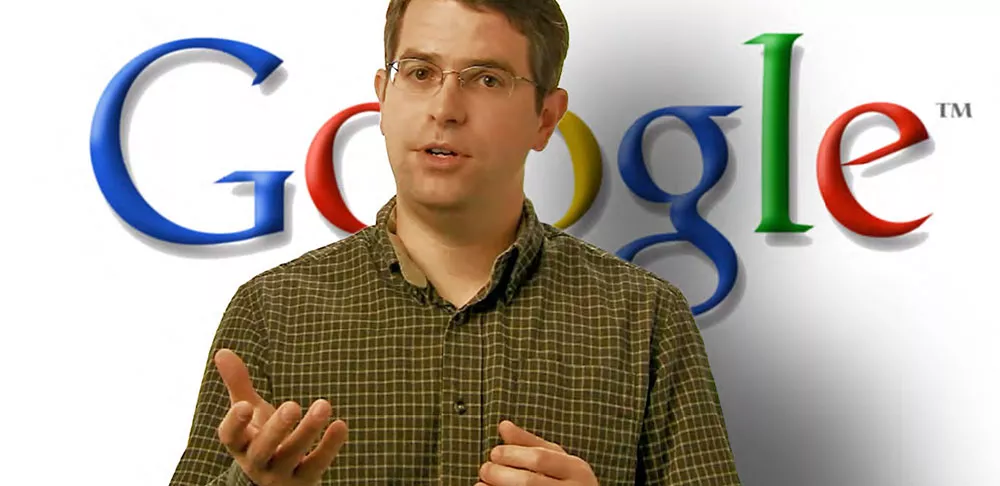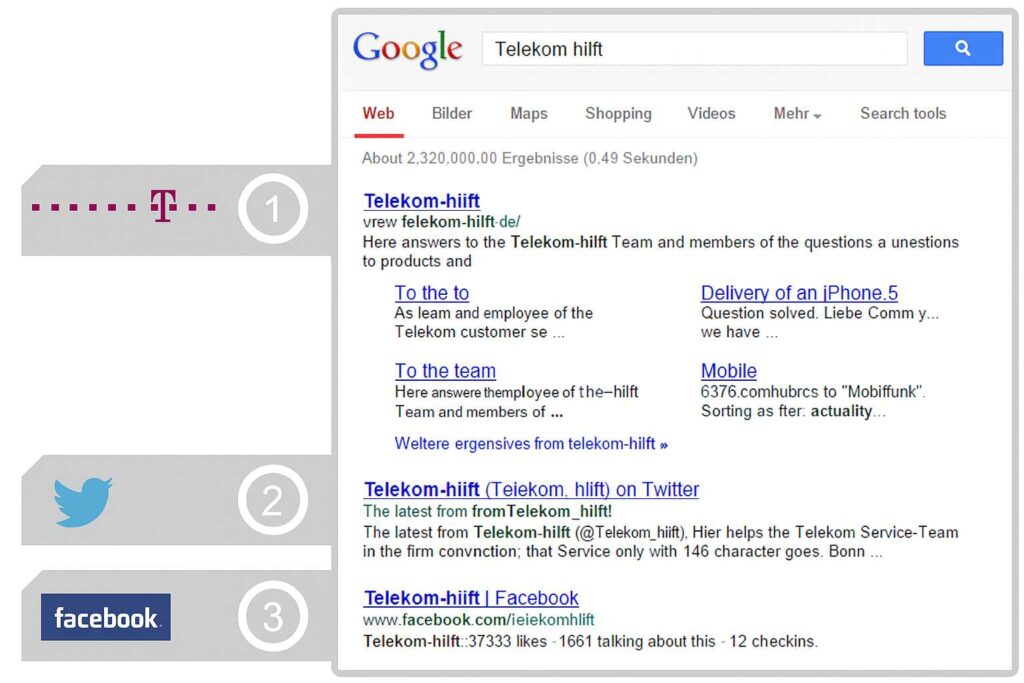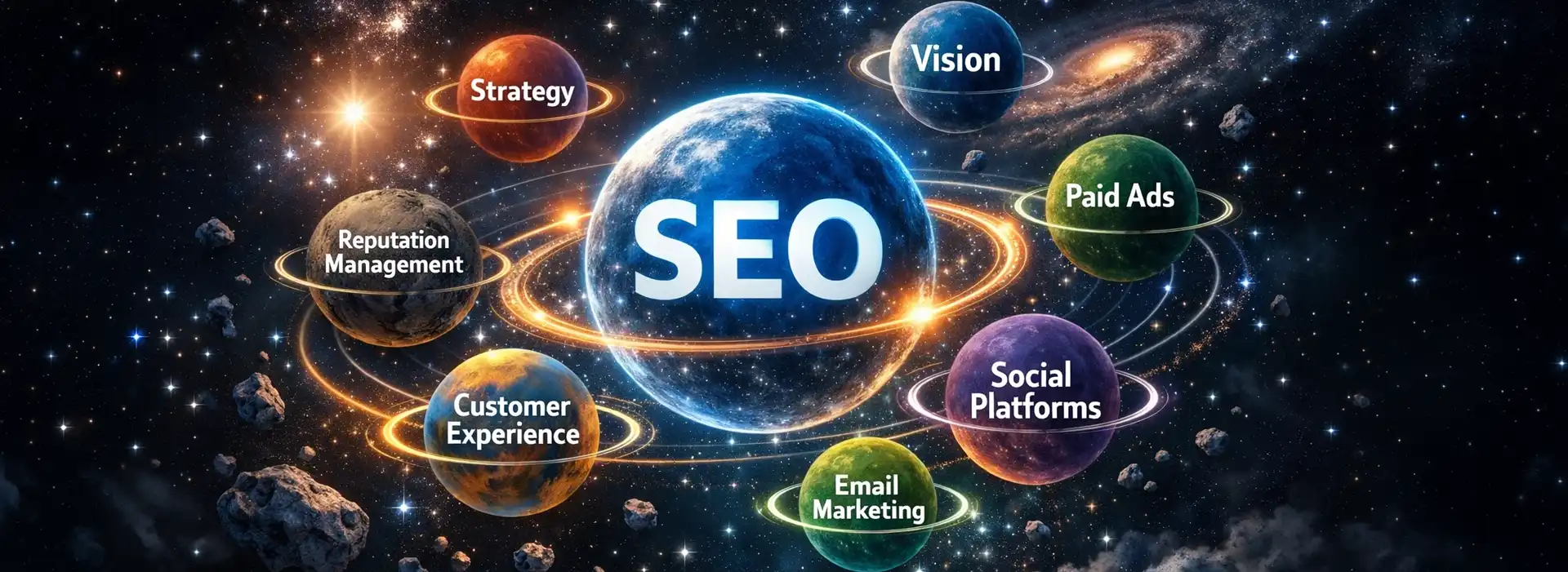However, people often forget to consider the potential effects this ranking can have on their own web presence. At the same time, many companies wonder how positively a Facebook presence might influence their own website—especially when linking from Facebook to it.
Starting with Wikipedia, the use of the REL-NOFOLLOW attribute has since spread to many social networks—and Facebook is no exception. That’s because Facebook, too, does not want to pass on trust (i.e., link equity) to any external websites. As a rule, search engines ignore all outbound links from Facebook, regardless of whether the timeline is public or not. This leads to the key takeaway:
A Facebook Page has no positive impact on your website’s SEO, because links from Facebook are irrelevant for search engines.
This applies to all other external URLs linked from Facebook as well—including YouTube videos. So, a link to your own YouTube channel provides no ranking benefit. While YouTube thumbnails are displayed in Facebook, and it might appear at first glance that a direct link exists, the REL-NOFOLLOW attribute ensures that the video does not gain any SEO advantage from it.
This statement contradicts what some SEOs believe: Ever since Matt Cutts from Google claimed in a December 2010 video that Google pays attention to outbound links from Facebook, it has sparked ongoing debate within the SEO community.

In his video, Matt Cutts does not clearly explain how exactly Google reads content from Facebook.
He actually qualifies his earlier statements and clarifies that Google can only read content that has been made public or is accessible by Facebook. If Facebook does not want content to be read—or actively blocks it—Google has no way to access it.
However, in his video, he addresses a different topic than the one many SEOs refer to. The fact is that a particular feature recently introduced by Google now allows users to link not only to websites but also to individuals. This linking is meant to be done using an attribute called REL-AUTHOR. With it, Google aims to explicitly identify the relevance of individual people. The idea is to distinguish opinion leaders on the web from others.
Since many individuals now present themselves through platforms like Facebook and Twitter, a link to a Facebook Page or Twitter account can be an indicator of that person’s importance to Google. However, it’s also likely that Google is still in an experimental phase with these features. So far, no concrete impact on SEO has been observed.
Thus, it remains true:
A link from Facebook—even if posted by an opinion leader—is not read or valued by Google due to the REL-NOFOLLOW attribute.
Matt Cutts is essentially referring to future or theoretical developments.
The same applies to Facebook ads.
Anyone running an ad and hoping to gain a backlink and thus SEO trust from search engines is out of luck. Facebook, much like Twitter, uses its own link service—an internal analytics tool. All URLs are first converted into a Facebook-specific tracking link, then redirected to the actual destination. As a result, search engines cannot identify the original target URL.
This approach is standard practice for banner ads as well. In effect, Facebook blocks all SEO benefits. If you advertise on Facebook, the only benefit comes from exposure to Facebook users themselves—not from any SEO value.

Impact on Your Own Website
Facebook Pages themselves are indexed by Google and can be found via standard Google Search. A Facebook Page that is active and features ongoing discussions will rank higher than an inactive one.
However, there’s generally little risk of your Facebook Page outranking your own website. Experience has shown that Google typically does not place Facebook content at the top of the search results. Google can distinguish between a social network and a custom-built website belonging to an organization. It always prioritizes the personalized website and assigns it a higher ranking. Google now even visually emphasizes these differences in search results—highlighting key buttons and content areas accordingly.
Ranking a Facebook Page Higher
Whether a Facebook Page ranks well in search results also depends on context and relevance. Several factors come into play—for example, the name of the Facebook Page, which serves as the page’s title in search engines and thus becomes its most important keyword.
Linking from your own website to your Facebook Page can also help improve its ranking. However, when doing this, you’re not just giving trust to your Facebook Page—you’re also transferring SEO trust to Facebook as a whole. Companies must come to terms with this trade-off.
You can gain an additional boost by encouraging your fan base to link to your Facebook Page from their own websites. These are considered classic SEO strategies, and they apply to all social media platforms. The more users link to a Facebook Page, the higher it will rank in search results.
In the case of “Telekom hilft” (as shown in the referenced illustration), the optimum has already been achieved—further SEO measures won’t increase its rank any further.

 by
by 

